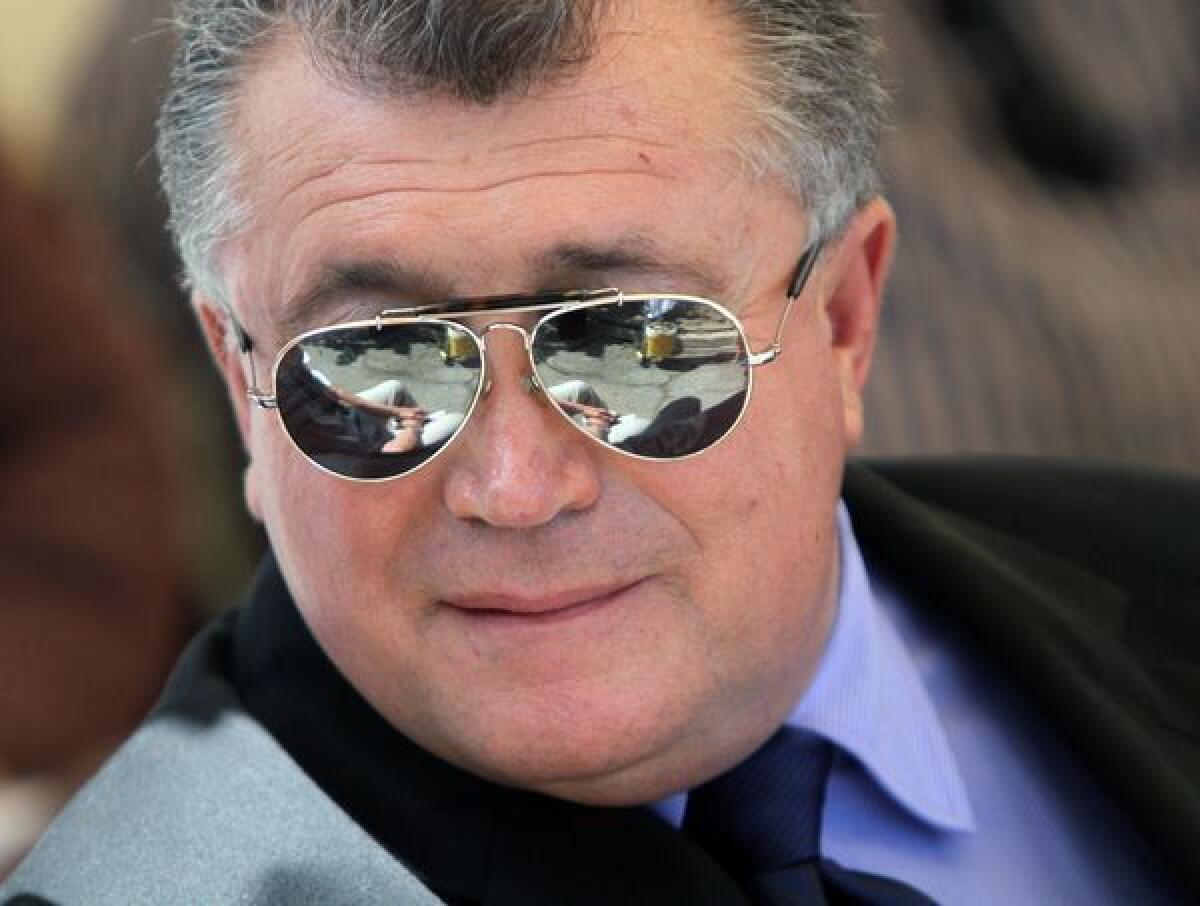Live Nation execs donated to L.A. official targeting scalpers

- Share via
Los Angeles City Atty. Carmen Trutanich, who is seeking a court order against ticket scalpers, accepted $18,000 in contributions from executives of Live Nation Entertainment Inc., a Beverly Hills company that stands to benefit from the proposed injunction.
Trutanich, whose unsuccessful run for district attorney in June left him $112,000 in debt, has filed a request for a civil injunction to prevent ticket resellers from hawking their wares within 100 yards of Staples Center, Dodger Stadium, the Los Angeles Memorial Coliseum and other sports and music venues.
Live Nation’s Ticketmaster service is the authorized ticket seller for Staples, the Coliseum and Dodger Stadium. Because the company would benefit from an elimination of competing ticket resellers, the donations could create an appearance of a conflict of interest for Trutanich, said Bob Stern, former president of the defunct watchdog group Center for Governmental Studies.
“The appearance looks like he is catering to campaign contributors,” Stern said. “But it happens a lot. Campaign contributors give to people who are their friends. Live Nation has a very strong interest in what they are doing, so I am sure they are applauding” the requested injunction.
Trutanich’s campaign officials adamantly denied a link between the contributions and the civil court action.
William Carter, chief deputy in the city attorney’s office, said he was unaware of the contributions from Live Nation executives and their families.
“We don’t file cases based on who contributes money or not,” Carter said. “We file them based on the case and the law. There are no other considerations.”
Trutanich’s request, filed Aug. 6 in Los Angeles County Superior Court and pending approval from a judge, seeks to prevent resellers from plying their trade within 100 yards of the venues. The motion lists 17 people who it alleges are “frequently engaging in ticket scalping,” and seeks to apply the same rules to future violators.
The 26-page court filing also cites scalpers’ “unfair competition” against legitimate ticket vendors and contends that scalpers pocket hundreds or thousands of untaxed dollars.
Live Nation has fought to curb the resale of tickets issued by its subsidiary, Ticketmaster. The company supports the Fans First Coalition, which lobbies state and local governments to outlaw ticket reselling. It has also championed “paperless” tickets, which require buyers to show their identification at the event.
The efforts are concentrated in Eastern states contemplating legislation to regulate the secondary ticket market, which some estimate to be $4.5 billion in the U.S. In New York last year, Ticketmaster failed to stop a law guaranteeing that ticket buyers have the option of getting a paper ticket that they can resell.
Trutanich’s injunction request turned it into a cross-country battle.
According to the Los Angeles City Ethics Commission, Trutanich received $15,000 in 2009 and 2010 from 13 Live Nation executives, including Executive Chairman Irving Azoff, Chief Executive Michael Rapino, General Counsel Michael Rowles, Chief Financial Officer Kathy Willard, and Ticketmaster Chief Executive Nathan Hubbard. Azoff’s wife, Rochelle, also donated $3,000 in 2009 and 2010.
Trutanich in 2009 locked horns with AEG, a Live Nation rival and the owner of Staples Center, in an attempt to get AEG to pay the city more than $6 million in “city costs” associated with the funeral of Michael Jackson, which was held at the downtown Los Angeles stadium. AEG and Jackson’s estate agreed in 2010 to pay $1 million to the city and $300,000 to the Los Angeles Police Foundation.
Carter said the idea for an injunction first came up 18 months ago, when his staff sat down with police officials to discuss ways to curb crime.
“We learned that scalpers on game days were using up a lot of LAPD resources,” Carter said. “We felt that if we could address that problem in a non-criminal way, it would free up police resources.”
Carter said the injunction was “designed to protect public safety,” not corporate interests.
Although that may be true, Stern said, scalping is not viewed as the most pressing concern for the public: “I don’t think there’s public outrage over scalping,” he said. “But for Live Nation and other ticket sellers, it’s very important.”
RELATED:
Injunction seeks to bar prolific ticket scalpers
Live Nation-backed group declares war on ticket resellers
Carmen Trutanich faces debt from failed run for district attorney
Follow Alex Pham and Andrew Blankstein on Twitter.
More to Read
The biggest entertainment stories
Get our big stories about Hollywood, film, television, music, arts, culture and more right in your inbox as soon as they publish.
You may occasionally receive promotional content from the Los Angeles Times.









